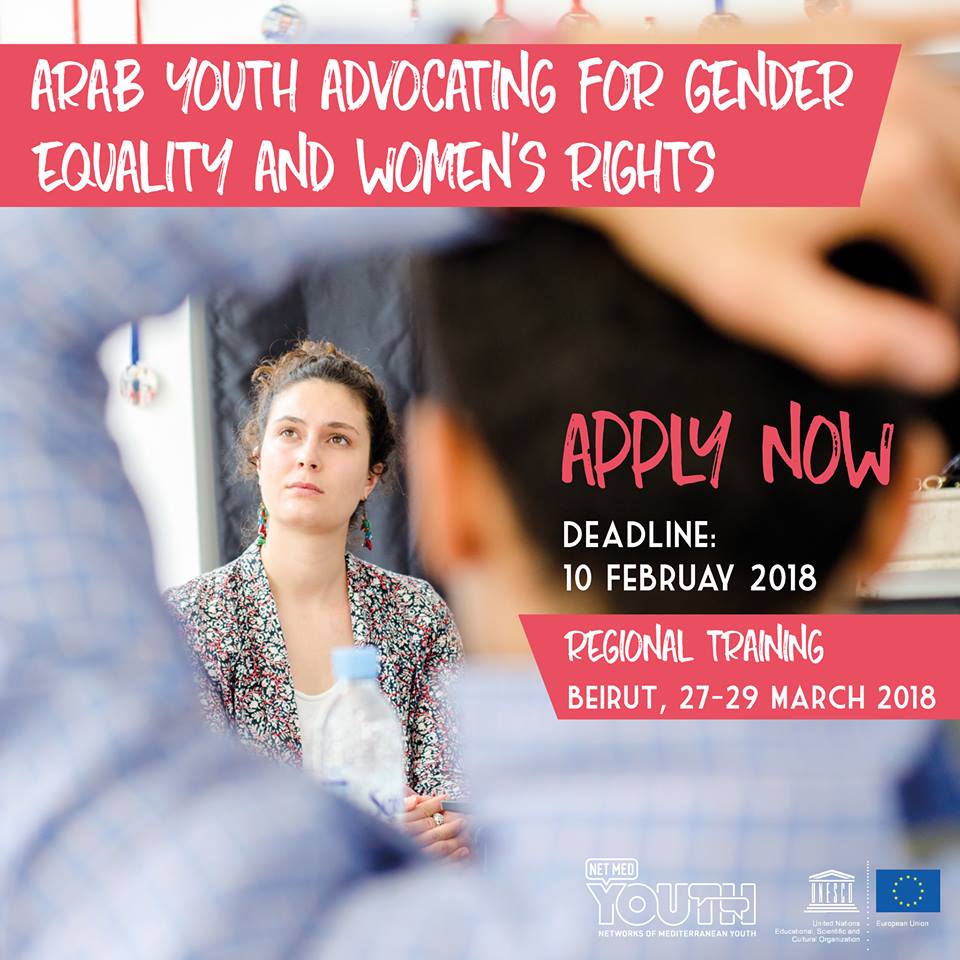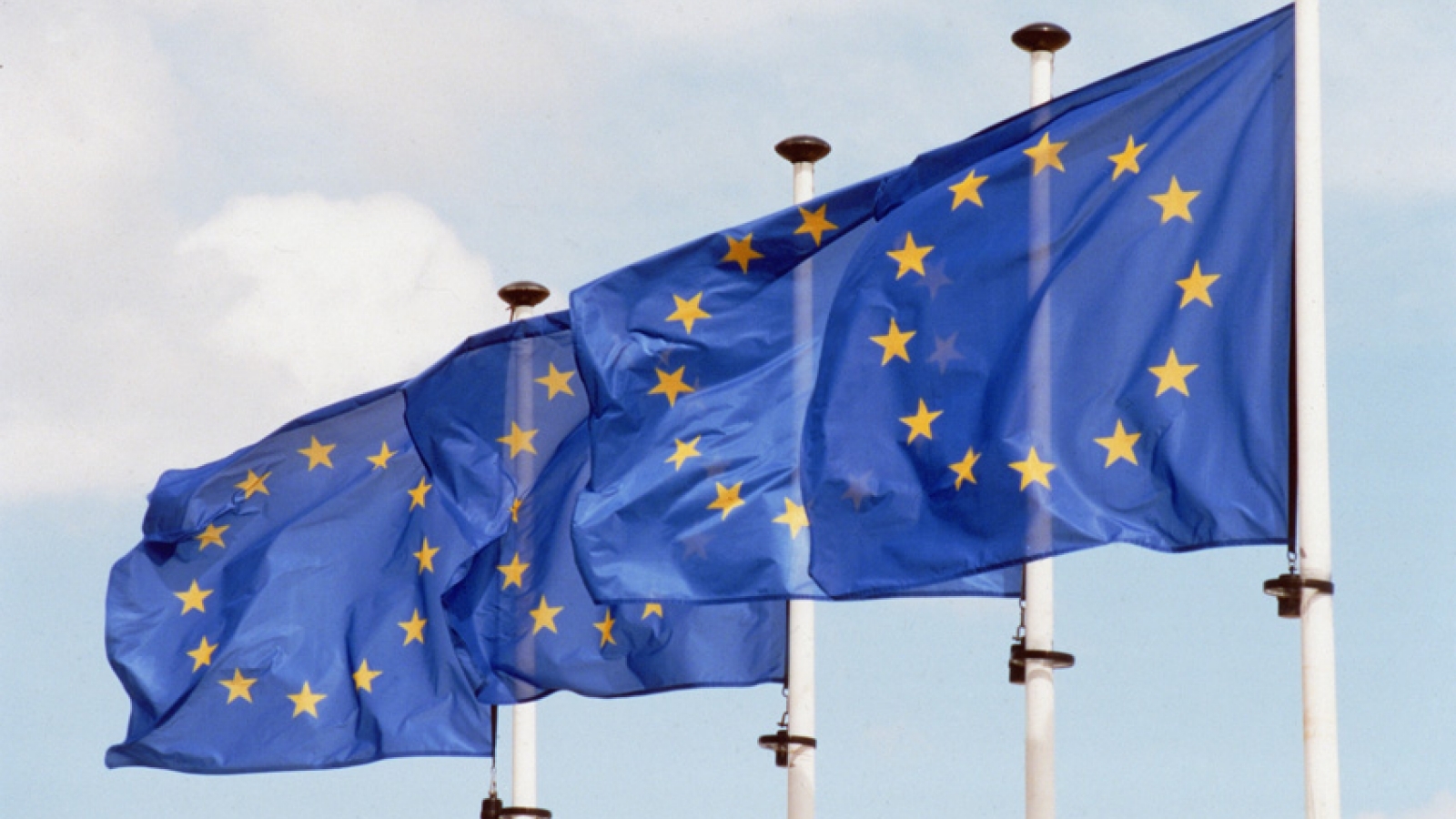NET-MED Youth holding regional workshop in Beirut to help Arab youth to advocate for gender equality

UNESCO Beirut is organising on 27-29 March a regional training workshop for ‘Arab Youth advocating for gender equality and women’s rights’, as part of the EU-funded NET-MED Youth project.
The three-day workshop builds on the successful advocacy campaigns carried out in Lebanon and in the region to promote zero tolerance for Gender-Based Violence (GBV). In 2016, a national-scale campaign was conducted by a Lebanese NGO, ABAAD, to abolish Article 522 of the Lebanese Penal Code, which included provisions preventing the prosecution or execution of a penalty is stopped if the rapist or kidnapper marries the victim.
Recently, Tunisia has abolished article 227 bis of its penal code, while Jordan repealed article 308, which include similar provisions. Prior to this, Morocco abolished similar legislation in 2014 and Egypt in 1999. Nevertheless, legal changes do not necessarily lead to effective and full implementation, and it is essential to raise awareness about women’s rights and GBV at both institutional and community levels.
This regional training workshop will be organised by UNESCO with EU funding, in partnership with Arab Institute for Human Rights (AIHR) and ABAAD.
Bringing together a group of 30 young men and women active in advocacy coming from 5 Arab countries together with representatives of youth forum from European countries, the workshop seeks to promote women’s rights and empowerment by building competences on advocacy for fair legislations and creating an enabling and supportive environment for adolescent girls and women by increasing the public’s awareness on GBV.
NET-MED Youth (Network of Mediterranean Youth) aims to improve the access and effective participation of young people in mainstreaming their priorities into legislation and national planning in the Southern Mediterranean Partner countries. Specifically, it aims to build the capacities of youth organisations in ENP South countries and to enhance networking among them in order to reduce the fragmentation of efforts and harness the collective potential of young people in achieving democratic transition towards active citizenship, political participation and social inclusion.
Read more




























 Syria
Syria 





